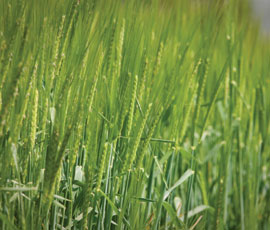Spring cropping can slash blackgrass

Battling blackgrass and brome were key issues addressed by speakers at the Crop Protection in Southern Britain Conference.
New research into the benefits of spring cropping for reducing blackgrass populations has shown consistent results, with an 88% mean reduction in the crop when compared with September-sown wheat.
Speaking on the first morning of the Crop Protection in Southern Britain conference in Peterborough, Stephen Moss of Rothamsted Research revealed the results of five field experiments.
“It is no surprise that spring cropping reduces blackgrass infestations, as most of the population will emerge during the autumn, with only a small flush in the spring.
“The benefits were consistent right across the trials, with a range of 78-96% in the absence of herbicides,” noted Dr Moss. “However, that cannot be said for delayed drilling.”
As part of the study, the use of delayed drilling was also shown to produce a 39% mean reduction in populations within the winter wheat crop, but results were inconsistent and in some cases populations were increased.
“Where the autumn had been wetter, the benefit of delayed drilling was markedly more significant then when rainfall was low,” explained Dr Moss.
“It is difficult to delay drilling in a wet autumn, but the results show that you need adequate moisture to allow germination, but not excessive enough to hinder cultivation and drilling.”
Caution
Despite the reduction that spring cropping can achieve, they can be difficult to establish on heavy land and if you are starting with high populations before establishment, the infestation in the crop can still be significant.
“The impact of drilling date in spring crops and its interaction with blackgrass populations is still unknown and crop competition will also be a factor,” said Dr Moss.
“We found in the study that spring barley was much more competitive than spring wheat, but this may not be the case with other options such as spring beans.”
Growers were also warned to check herbicide choices, as they are limited in spring crops. High levels of resistance to ACCase inhibitors, which are the main tools in the spring, limits blackgrass control options.
“However, on bad sites where you are achieving little or no chemical control of blackgrass, I believe spring cropping may be the best option to get on top of the issue,” concluded Dr Moss.
Blackgrass control
- Spring cereal provided 88% reduction
- Consistent over five years
- Delayed drilling unreliable
More from the Crop Protection in Southern Britain Conference
Clethodim could add to blackgrass armoury
Product choice key in reducing fusarium ear blight
Agronomics may be favouring brome species

